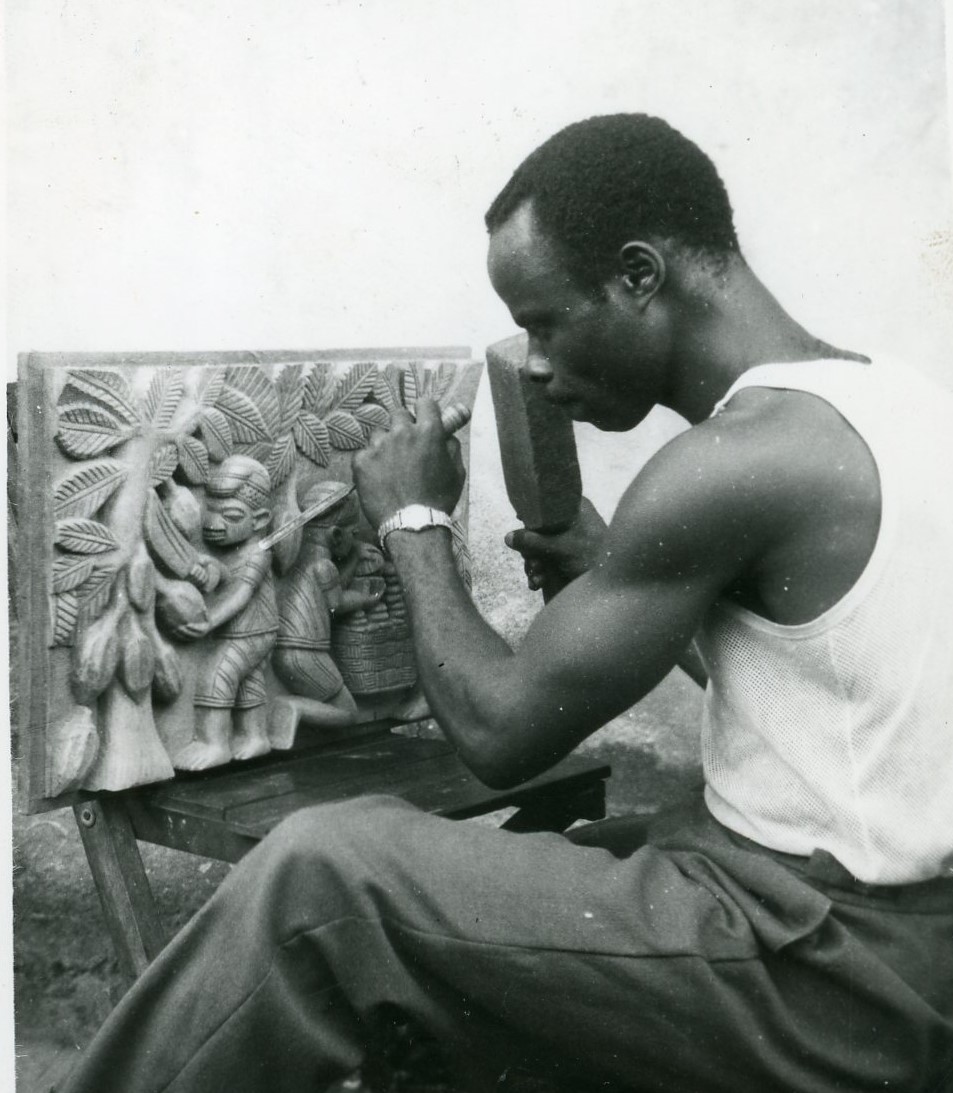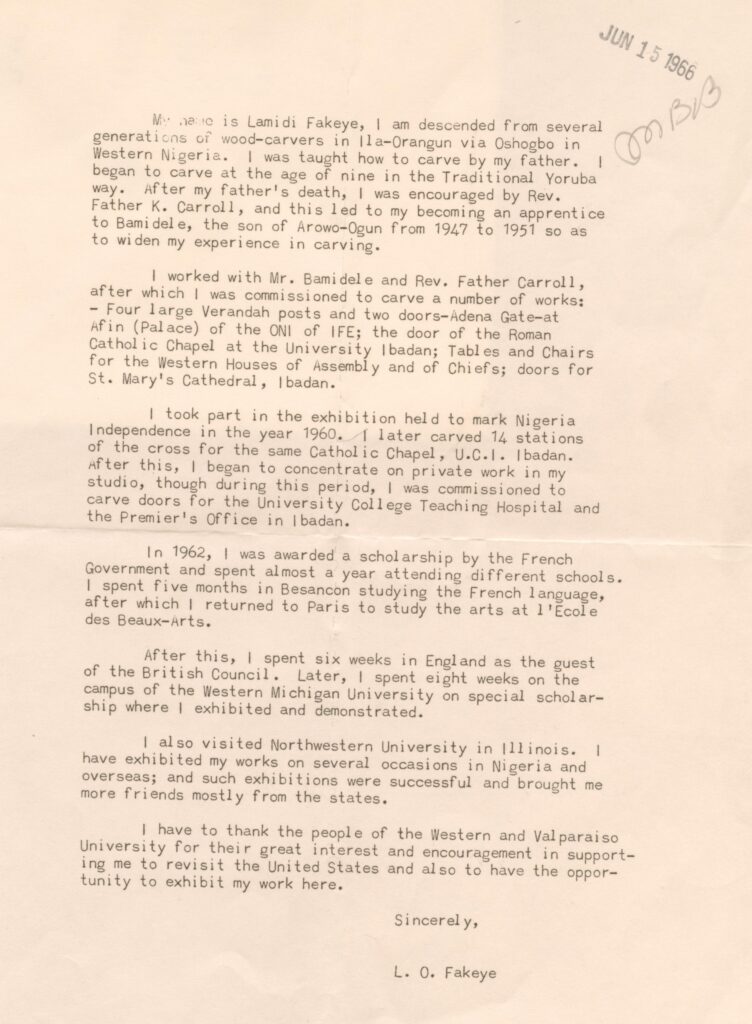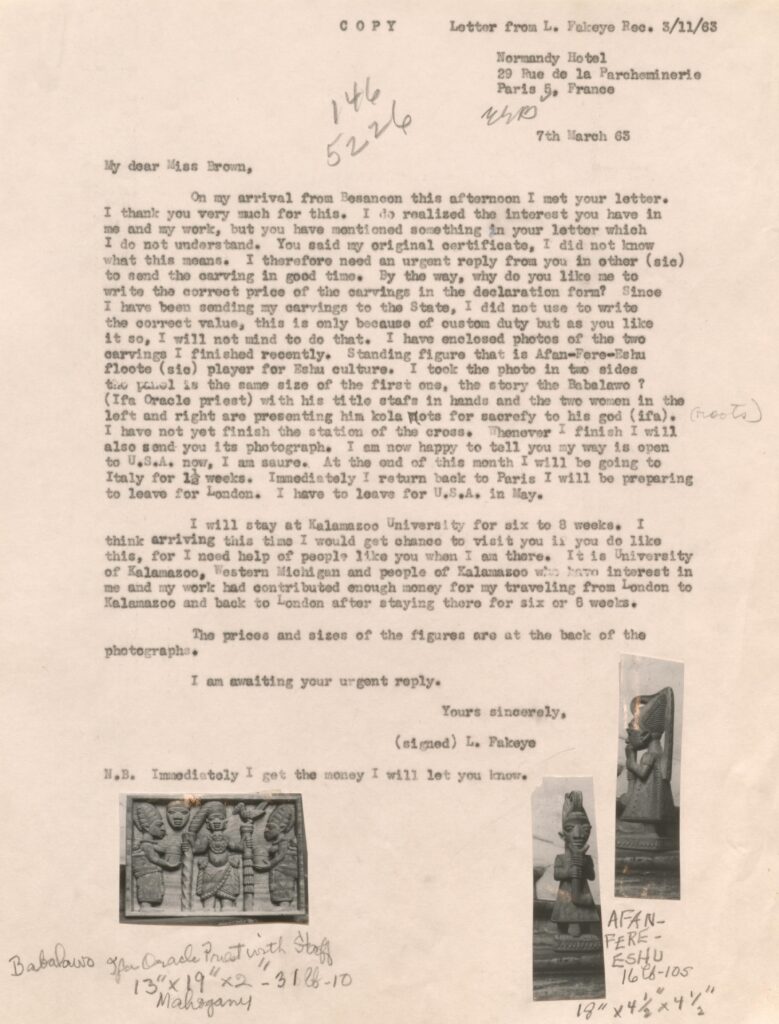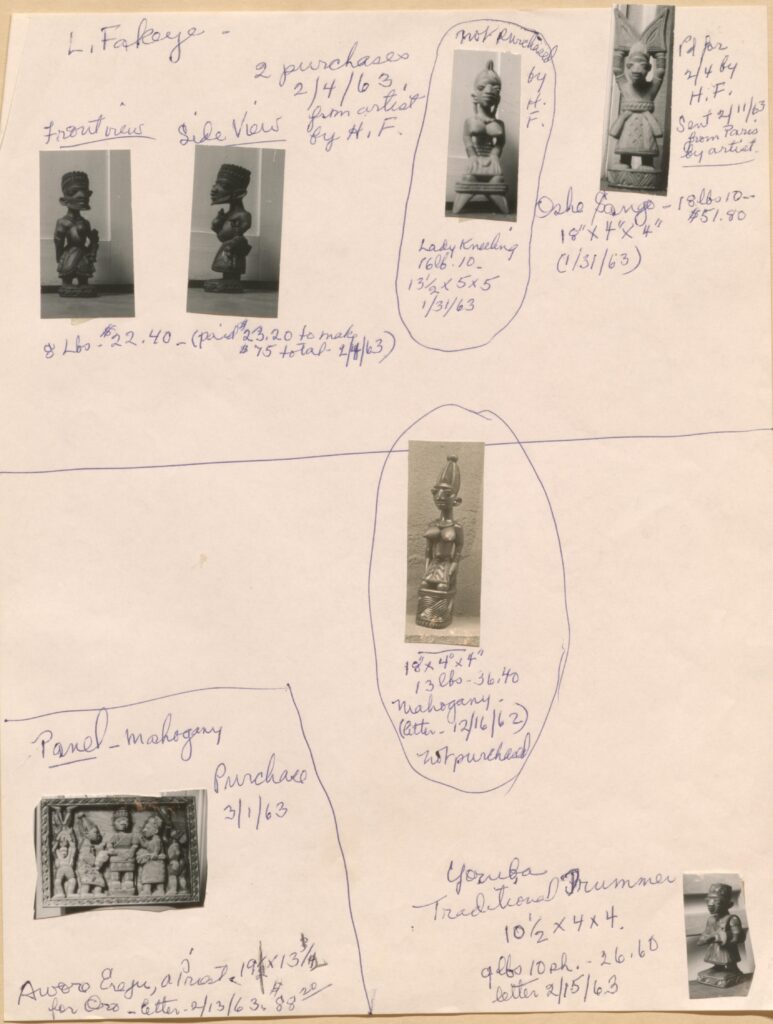
Lamidi Fakeye
Lamidi Fakeye was born in Ila-Orangun, Nigeria. A fifth-generation wood carver, Fakeye learned wood-carving techniques from other sculptors and family members. His father, Akobi Ogun Fakeye, was a wood carver who had access to family knowledge from four generations of artists. This included access to tools and techniques. Lamidi Fakeye shares, “I was unafraid of the sharp and dangerous instruments (knives, chisel, mallet) with which my father carved wood. I began making toys for children, carving bowls, ladles, and other household utensils.” After his father passed away, Fakeye traveled to different towns and met another sculptor, Bamidele Arowo-Ogun. Building off the skills he learned from his father, Fakeye apprenticed with Arowo-Ogun to develop his own carving style.
Aworo Ereju, A Priest for Oro

century. Mahogany, 13 ⁵⁄₁₆ × 19 ¼ × 1 ¾ in. Hampton University
Museum, Gift of the Harmon Foundation, 67.233.
Throughout his artistic career, Fakeye used his knowledge of wood carving and Yoruba culture to create sculptures that encapsulated aspects of Yoruba traditions.
Aworo Ereju: A Priest for Oro showcases Fakeye’s technical knowledge and skills, as well as his knowledge of Yoruba social hierarchies and religious beliefs, practices, and paraphernalia. This wooden plaque depicts an aworo or priest for the Yoruba God, Oro. The priest holds an irukere, which represents his power and status. The image’s composition shows the priest seated, while the other figures stand. This seated position lets us know that the priest is of a higher status than the others. The priest is flanked by attendants, a musician with a horn, and acrobats, indicating that a celebration is underway. Fakeye’s precise and detailed carving technique can be seen in the border and background and in the beautiful attire of the figures.


